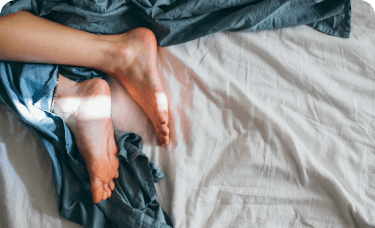Not getting enough sleep can be a trigger for some headache sufferers. Find out how to practice good sleep hygiene.
Most people are familiar with the benefits of practicing good personal hygiene. But did you know that there’s also such a thing as sleep hygiene? Practicing it can be a tool for some headache sufferers –sleep disorders have been linked to headaches, while irregular sleep patterns and changes in sleep patterns are headache and migraine triggers for some.
What Is Sleep Hygiene?
Sleeping seems simple enough: You get tired, and you go to bed. But for some, it’s not that easy. Sleep hygiene refers to our sleep habits, or behaviors and environmental conditions that lead to more restful sleep, including avoiding sleep disruption.









